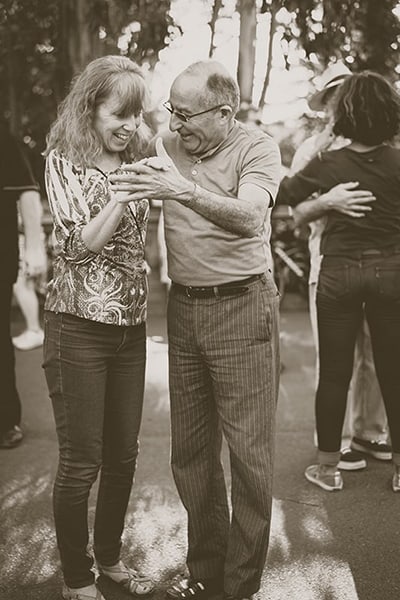There are many advantages to getting older. Many of us enjoy at least one (if not all) of the following:
- A happier outlook on life.
- Grandchildren.
- Pursuing a dream.
- Volunteering.
- More confidence socially.
- More time to enjoy each day.
- Senior discounts!
- Pride in accomplishments.
And let’s not forget the most important one… wisdom! In all seriousness, many seniors feel more content in life as they grow older.
Studies show that seniors are one of the happiest groups of people, and that they are significantly more happier than their middle-aged counterparts.
As sweet as life may be, many seniors also deal with stereotypes that can be harmful and hurtful. Knowing them helps us to debunk some myths and ensure that we all avoid practicing society’s senior stereotyping.
Stereotypes
As a population ages, they may begin to deal with harmful stereotypes that cause them to be treated differently and even badly by the general public, healthcare workers, and even social workers. Much like racism and sexim, ageism is a social disease fed by harmful stereotypes.
Thanks to pop culture and society, elders are often lumped together under the title of “old” and labeled with a demeaning set of characteristics: senile, sickly, greedy, cranky, child-like, and more.
We need to change the way society sees and treats our senior citizens and fight against ageism that occurs in daily interactions and cultural exchanges.
In movies, TV shows, and popular culture, there are four different ways ageist stereotypes are presented:
- Elders are seen as helpless and vulnerable.
- Elders defying stereotypes are made to appear comical.
- Growing old is equated with inevitable decline.
- Elders are underrepresented and ignored.
Though some may consider these insignificant, it does have an impact on how society acts on the presented stereotypes and assumptions.
Duke University recently published the results of a survey which found that 80% of elder respondents reported experiencing the direct effects of ageism, like being ignored or not taken seriously simply because of their age.
Even physicians have been known to treat their senior patients in a condescending manner and provide oversimplified information or speak to the family instead of the individual.
According to the U.S. Equal Employment Opportunity Commission, age-based discrimination complaints are continuing to rise year after year.
Debunking the Myths
There are many myths surrounding aging, and we’re going to debunk them all!
Myth 1: Aging Slows Wit
While it’s true that aging can create cognitive changes, senior citizens may perform better in certain areas of intelligence.The New York Timesactually points out that mental capabilities that depend on accumulated experience and knowledge (like disputes and vocabulary) obviously get better with time.
Myth 2: Aging Is Depressing
See section one to have this one debunked. Seniors have been shown to be among the happiest people on the planet. In fact, after age 40, studies show that happiness levels only drastically increase over time.
Myth 3: Aging is Lonely
While social isolation can be an issue for some senior citizens, most have reported being more socially active than any other time in their life. Between activities with family and vacations and outings with friends, there are many meaningful engagements that keep senior citizens socially engaged on a daily basis.
Myth 4: Aging Is Unproductive
This myth may come about because retired people leave the workforce. However, seniors often become even more busy and involved in activities after retirement. Volunteering, help with child-rearing, mentoring, and other engagements that make a huge impact on society.
As you can see, there’s nothing negative, shameful, helpless, or depressing about senior citizens. It’s important that we advocate for seniors and be a voice in society to advocate for elders to be treated with the grace and dignity that they deserve.


 Schedule a Tour Today!
Schedule a Tour Today!







